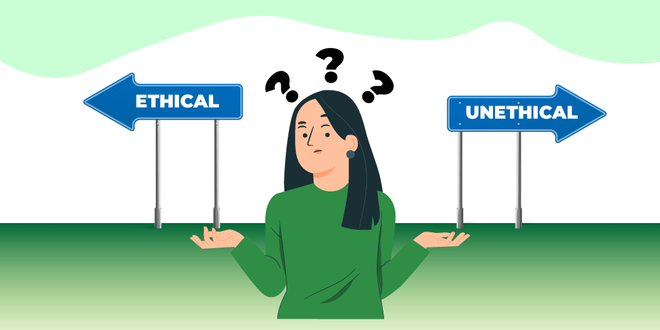Virtue Ethics: Why Character Matters in Modern Society

In today’s fast-paced and complex world, questions of morality and ethical behavior remain central to human interaction. Amid technological advancements, political challenges, and social transformation, the timeless principles of virtue ethics offer a compelling framework for guiding personal and societal conduct. Virtue ethics emphasizes the importance of character and moral virtues in leading a good and meaningful life, contrasting with rule-based or consequentialist ethical systems.
This article delves into the foundational concepts of virtue ethics, its relevance to modern society, and why cultivating good character is more critical than ever.
What Is Virtue Ethics?
Virtue ethics is an approach to morality that focuses on the character traits or virtues of individuals rather than rules (deontology) or consequences (utilitarianism). Its roots trace back to Ancient Greek philosophy, particularly the teachings of Aristotle and Plato.
Core Principles of Virtue Ethics
1. Moral Virtues: Traits like courage, honesty, compassion, and justice are cultivated over time to build a virtuous character.
2. Eudaimonia (Flourishing): Living a virtuous life leads to personal and societal flourishing, which Aristotle considered the highest good.
3. Practical Wisdom (Phronesis): The ability to make sound moral judgments in varying situations is central to virtue ethics.
Why Character Matters in Modern Society
1. A Foundation for Trust
In an era of misinformation and declining trust in institutions, character plays a pivotal role in rebuilding confidence. Virtues like integrity and honesty foster genuine relationships, whether in personal life, politics, or business.
- Example: Leaders with strong moral character inspire trust and loyalty, essential for effective governance and corporate success.
2. Promoting Ethical Leadership
Modern society requires leaders who exemplify virtues such as humility, courage, and justice. Ethical leadership goes beyond adhering to laws; it involves making principled decisions that prioritize the common good over personal gain.
- Case Study: Leaders like Mahatma Gandhi and Nelson Mandela embodied virtue ethics by demonstrating unwavering commitment to justice and compassion.
3. Addressing Social Challenges
From climate change to social inequality, addressing global challenges requires collective action grounded in virtues like responsibility, empathy, and cooperation. Virtue ethics emphasizes the importance of individuals embodying these qualities to create a more just and sustainable world.
Virtue Ethics vs. Other Ethical Theories
1. Deontology (Duty-Based Ethics)
While deontology focuses on following rules or duties, virtue ethics emphasizes the moral agent’s character.
- Example: A person might follow the law (deontology) but lack integrity in their intentions. Virtue ethics evaluates the underlying character driving actions.
2. Utilitarianism (Consequence-Based Ethics)
Utilitarianism evaluates actions based on their outcomes, seeking the greatest good for the greatest number. Virtue ethics, on the other hand, values the cultivation of virtues as a lifelong process, regardless of immediate consequences.
- Example: Sacrificing individual rights for collective benefit might align with utilitarian principles but conflict with virtues like justice and compassion.
The Role of Virtue Ethics in Contemporary Issues
1. Business and Corporate Responsibility
Virtue ethics encourages organizations to go beyond profit-making by embedding virtues such as fairness, accountability, and transparency into their operations.
- Example: Companies that prioritize ethical practices often gain long-term loyalty from customers and employees, as seen with brands committed to sustainability and fair trade.
2. Technology and Artificial Intelligence
As technology becomes increasingly integral to daily life, virtue ethics offers a framework for designing systems that prioritize human well-being. Developers and policymakers can focus on virtues like responsibility and empathy when shaping technological advancements.
- Example: Ethical AI systems consider the social impact of automation, prioritizing equity and minimizing harm.
3. Education and Personal Development
Instilling virtues in educational systems equips individuals with the moral compass needed to navigate life’s challenges. Beyond academic excellence, fostering virtues like resilience, kindness, and curiosity prepares students for responsible citizenship.
- Case Study: Character education programs in schools, such as teaching empathy and teamwork, contribute to holistic development.
Cultivating Virtue in Everyday Life
Building a virtuous character is a continuous journey that requires self-reflection, practice, and commitment. Here are actionable steps to incorporate virtue ethics into daily life:
1. Practice Self-Reflection
Regularly evaluate your actions, intentions, and character traits. Identify areas for improvement and celebrate personal growth.
- Tip: Keep a journal to track your progress in cultivating virtues like patience or honesty.
2. Emulate Role Models
Learn from individuals who exemplify strong moral character, whether historical figures, mentors, or community leaders.
- Example: Study the lives of figures like Mother Teresa or Martin Luther King Jr. to understand how virtues drive meaningful change.
3. Engage in Community Service
Contributing to society fosters virtues such as compassion, generosity, and humility. Volunteer work provides opportunities to practice these traits in real-world settings.
- Tip: Join local initiatives that align with your values, such as environmental conservation or social justice efforts.
Critiques of Virtue Ethics
While virtue ethics offers valuable insights, it is not without criticism:
1. Subjectivity: What constitutes a virtue can vary across cultures and individuals, leading to differing interpretations.
2. Lack of Action Guidance: Critics argue that virtue ethics does not provide clear rules for resolving specific moral dilemmas.
3. Focus on Individuals: Some contend that virtue ethics places too much emphasis on personal character, neglecting systemic issues.
Despite these critiques, virtue ethics remains a powerful tool for navigating the complexities of modern life.
Conclusion: The Enduring Relevance of Virtue Ethics
In a world grappling with ethical challenges, virtue ethics emphasizes the importance of character in fostering trust, leadership, and social harmony. By cultivating moral virtues, individuals and communities can build a foundation for personal fulfillment and collective flourishing.
Virtue ethics reminds us that true ethical living goes beyond adhering to rules or seeking favorable outcomes. It calls for a commitment to developing one’s character, embodying virtues that reflect humanity’s highest ideals. As modern society evolves, the timeless wisdom of virtue ethics offers invaluable guidance for creating a better world.
